
OR
Oli, Leftcoalition, Clearoutline, Opinion
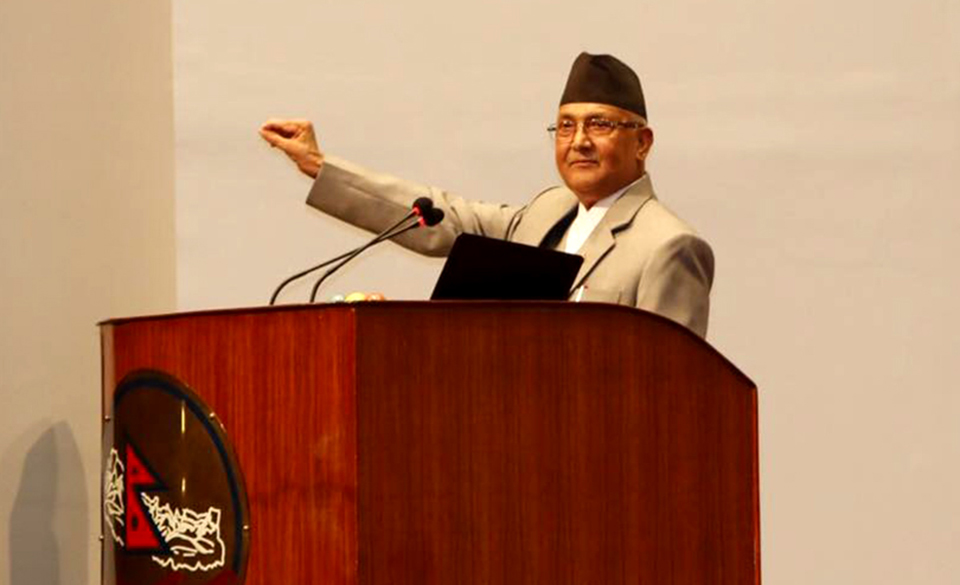
To effectively lead the left coalition including the Maoists, KP Sharma Oli must clearly outline where he stands on parliamentary democracy.
Khadga Prasad Oli (KP Oli), former prime minister and current Chairman of CPN-UML, will most likely not remember this.
It was over a decade ago in late 2003 or early 2004. I can’t recall the exact date either. Oli was at a small closed-door program hosted by a development agency at the Radisson Hotel. The participants representing a wide cross-section of Nepal’s society were discussing the ongoing Maoist conflict. Talk of a peaceful resolution was already in the air, even though it would be a couple more years before it was achieved, bringing with it the monarchy’s end.
I vividly remember Oli’s somewhat prescient views at the time. The country had hit rock-bottom in terms of the conflict, he said. Things would turn around. It was time to start preparing for a post-conflict scenario, he recommended.
Of all the statements that morning, Oli’s remarks stood out and emerged as the key takeaway. While at the lunch that followed the talk, the moderator pressed Oli on what he meant by post-conflict scenario.
The Maoists must get a soft landing, he said. I don’t recall what he said after that, but those words stuck with me. A decade later, I can still hear him say that between his mouthfuls. Those thoughts remain as meaningful today as they were back then.
Many things have happened since. Oli has become prime minister. He has been elected UML chairman. He has led his party to a convincing victory in the first local elections of the democratic republic Nepal. Most recently, he has stitched together a coalition of left-aligned parties, integrating Maoists and its affiliates with UML.
The left coalition has indicated that the alignment is not just a tactical partnership for the forthcoming central and provincial elections. The parties are expected to merge. Thus far, despite the occasional hiccup, such as the departure of the Maoist ideologue Baburam Bhattarai from the coalition, the commitment to merge into one unified communist party appears to be holding.
Left, right and center
The convergence of the left parties should be welcomed. Nepal urgently needs stability. The consolidation of political forces is an essential first step towards that end. The left coalition will trigger a similar coalition at the center and on the right, a move that has already begun with Nepali Congress leading the effort. Fewer political parties with less diffuse power centers may be one way to greater stability.
If that is what Oli envisions with his grand left coalition and achieves it, he will earn himself an unshakeable legacy in Nepal’s history.
But nobody really understands Oli’s construction of the grand left coalition. Is it a marriage of political convenience or a deeper philosophical alignment describing a larger intent?
Many leaders and political observers have noted that the left coalition between UML and Prachanda’s Maoists had been in the works for over ten years. Its key architects have described the emerging outfit as a left-leaning socialist force with a forward-looking agenda that will play by the democratic rulebook. But beyond these abstract statements, no one has offered a clear view on the intent and objectives of this coalition and ultimately the new political party.
Oli must address this question. As the republic Nepal heads into its first elections, he must define the coalition, not in abstract terms but specifically on the positions it will take.
If Oli meant what he said ten years ago about providing the Maoists a soft landing, there could be nothing softer and more definite than integrating them into an established communist party like UML.
But the Maoists have worked too hard. They have fought an intense civil war. They have blocked meaningful post-conflict reconciliation. They have actively destabilized parliamentary politics. They have undermined confidence in elections. They have challenged the legitimacy of the government.
For the Maoists, does the merger with the UML represent the endgame? Or does it represent a step in the continuing journey towards a bigger endgame? Is it a soft landing or is it a launching pad for the next phase of the Maoist revolution?
Why vote for you?
To give Nepalis a real choice at the election, Oli must clearly address where the coalition stands on the question of executive president. The Maoists have proposed amending the constitution to bring about a directly elected executive presidential system from the current parliamentary system. This idea has been subsequently echoed by many UML leaders, most notably the chief architects of the coalition.
A full debate on the system of executive presidential system hasn’t taken place. But the system is open to abuse and would risk significant erosion of democratic norms. On the surface, the executive presidential system appears to be part of the Maoist endgame.
Oli must offer a clear response on whether the left coalition supports changing the current parliamentary system to a directly elected executive presidential system. Will the system of directly elected executive president be its election plank, too?
Nepal’s continued instability reflects the fact that genuine peace hasn’t been achieved. The wounds of war are still fresh. Grievances still simmer. Missing persons remain unaccounted for. There has been no genuine effort at truth and reconciliation.
Violence has ceased. Fighting has stopped. The battle is suspended. But the war isn’t over.
As the chief architects of the peace process, both UML and Nepali Congress have found it convenient to skirt this issue. Promulgation of a new constitution has offered a neat diversion. But the foundations of a new country cannot be built unless the war is first over.
How will the new left coalition guarantee meaningful reconciliation and end the war? Whatever the reconciliation process—whether it involves punitive retribution or an appeal to compassion or nothing more than a large monument in honor of those who died—Oli must make his pledge clear.
Oli must lead his coalition into the elections with clearly defined positions on these and other important issues.
Binding principles
Much as he characterized the situation ten years ago, Oli himself now stands at a crucial juncture in Nepal’s history. He has fashioned an unexpected but compelling coalition that could offer political stability, a socialist approach to development and an opportunity for real progress.
But he also runs the risk of becoming history’s biggest buffoon. If he and the left coalition allow the Maoists to continue to challenge the legitimacy of the state and the credibility of elections, if they become no more than a vehicle for the Maoist’s ongoing struggle for a soft takeover through a directly elected president, Oli will become the biggest buffoon in history.
To protect against Maoists vagaries, Oli must offer a clear set of binding principles which the coalition will abide by. Most importantly, he must clearly state the coalition’s position on the current multi-party parliamentary form of democracy, and wherever they stand on it.
Nepalis must know why they are voting for Oli.
bishal_thapa@hotmail.com
You May Like This
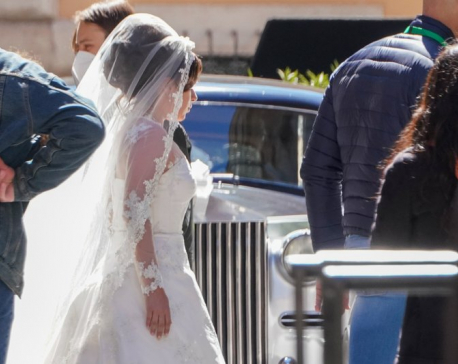
Gucci heirs worry over family depiction in Ridley Scott film
The great-grandchildren of Guccio Gucci, who founded the luxury fashion house that bears his name nearly a century ago in... Read More...
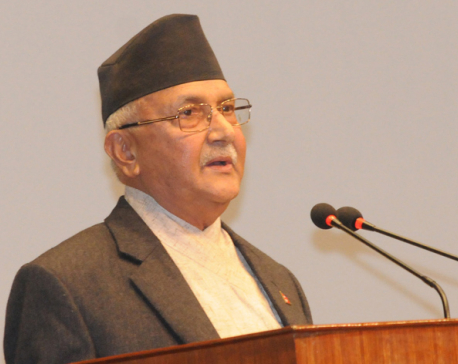
Agenda of PM Oli's China visit finalized
KATHMANDU, June 14: Most of the agenda of Prime Minister KP Sharma Oli's China visit have been finalized. Prime Minister... Read More...

PM Oli's message on World Environment Day
KATHMANDU, June 5: Prime Minister KP Sharma Oli has said that it is the responsibility of the present generation to... Read More...




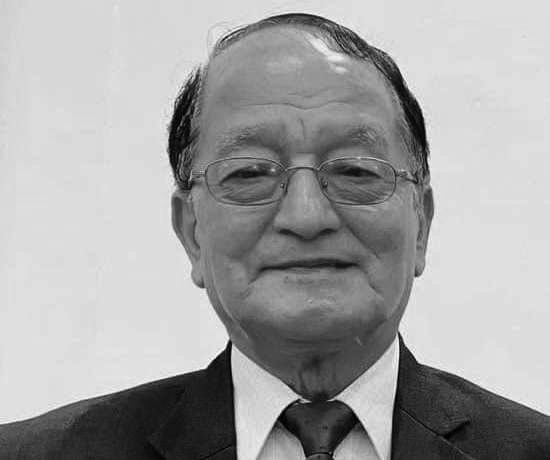
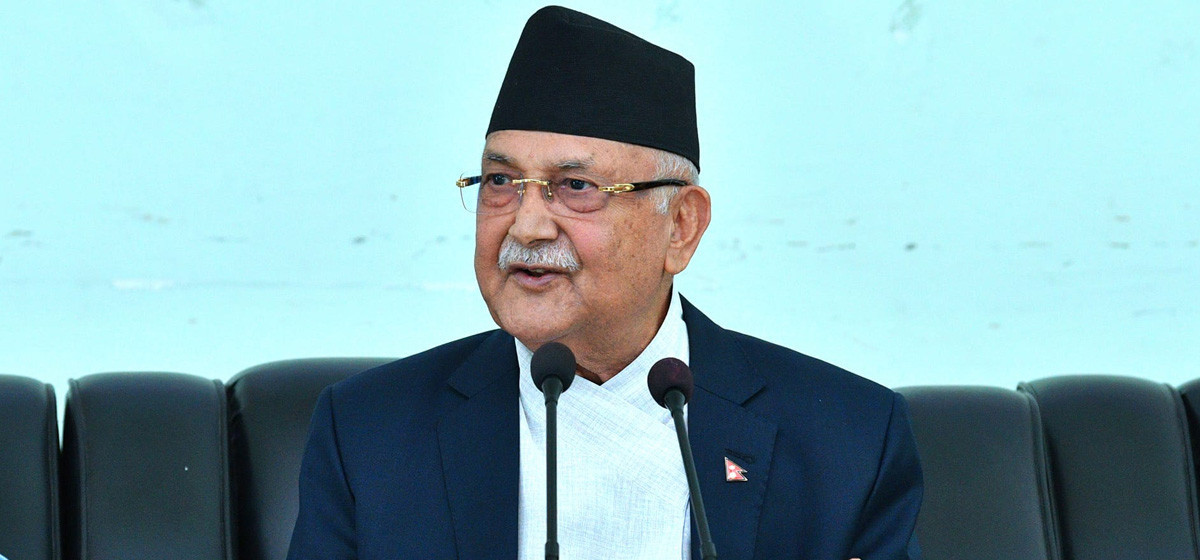
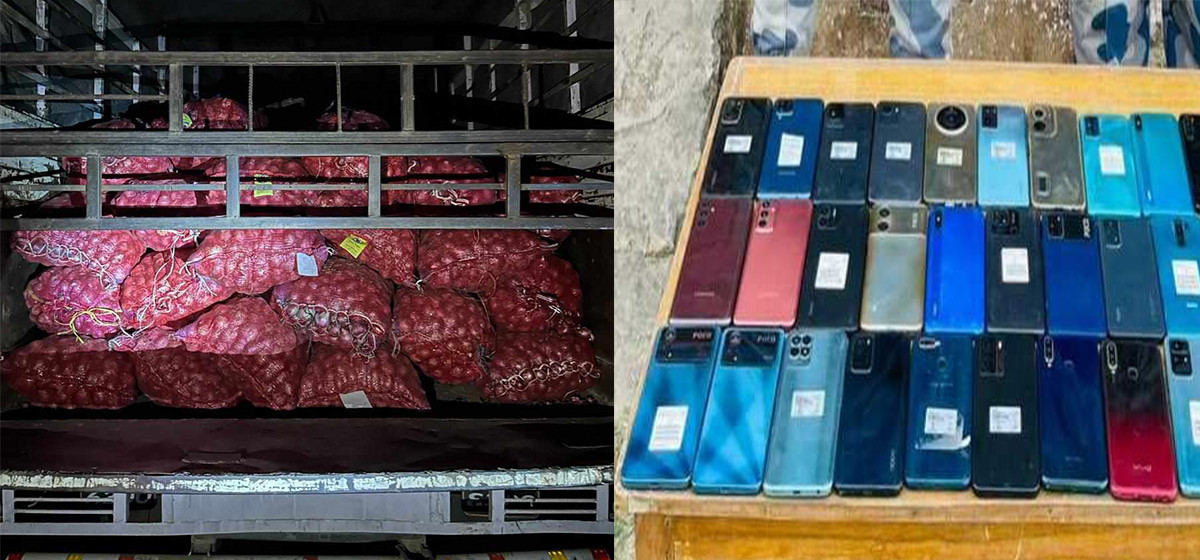
Just In
- Eight Chinese citizens injured in Scorpio-microbus collision in Pokhara
- Former chief secretary Shakya passes away
- UML Chair Oli appeals vote for Nembang
- APF seizes illegally imported 152 sacks of onions and 32 units of mobile phones from Dhansuha
- 80 civil servants left in the lurch as MoFAGA places them in reserve pool
- Weather Alert: Storm likely in Lumbini and Sudurpaschim
- NOC investing Rs 3 billion to construct fuel storage plants of over 9,000 kl capacities in Bhairahawa
- Reflecting on a festive journey filled with memories and growth




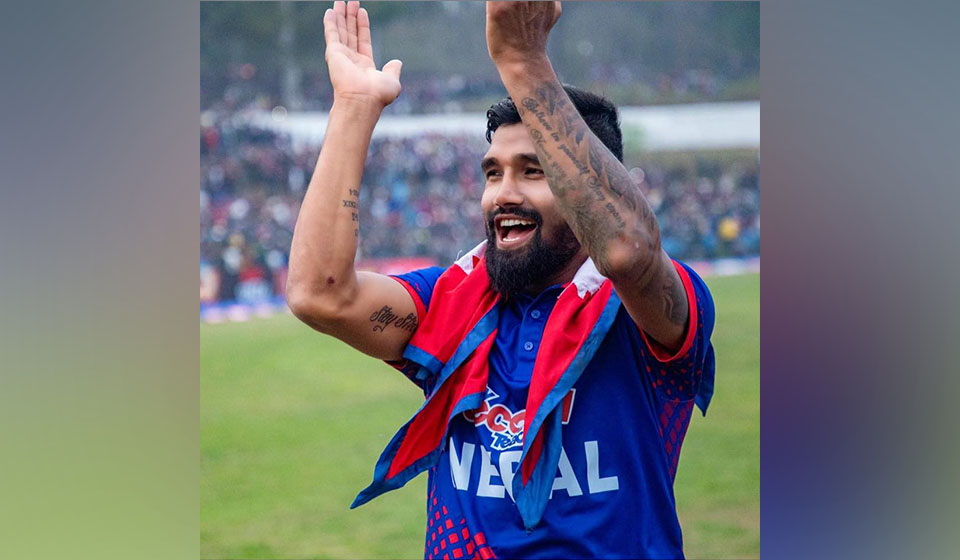

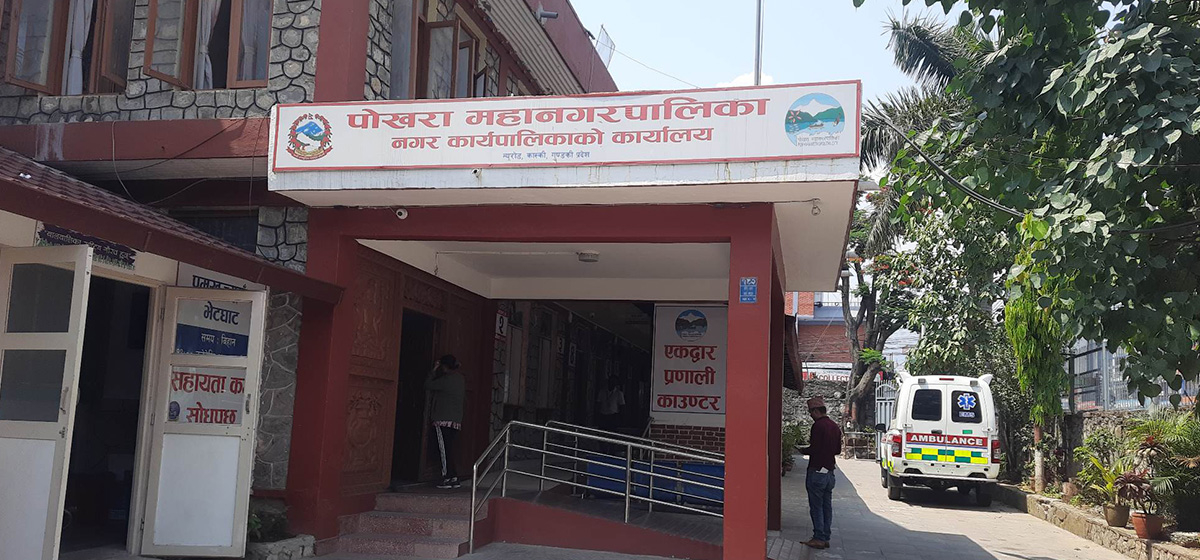
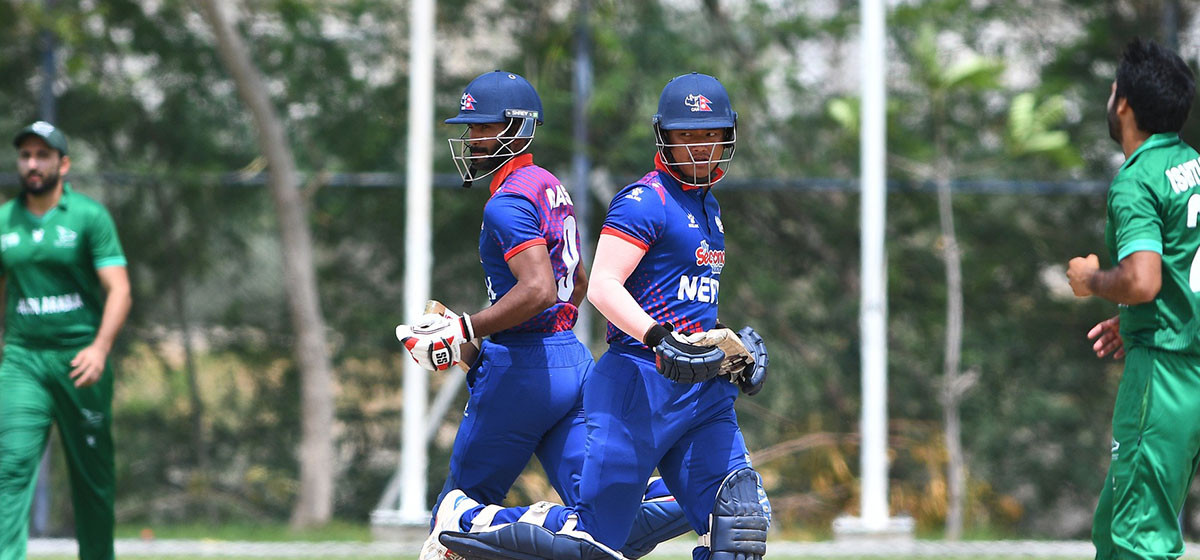

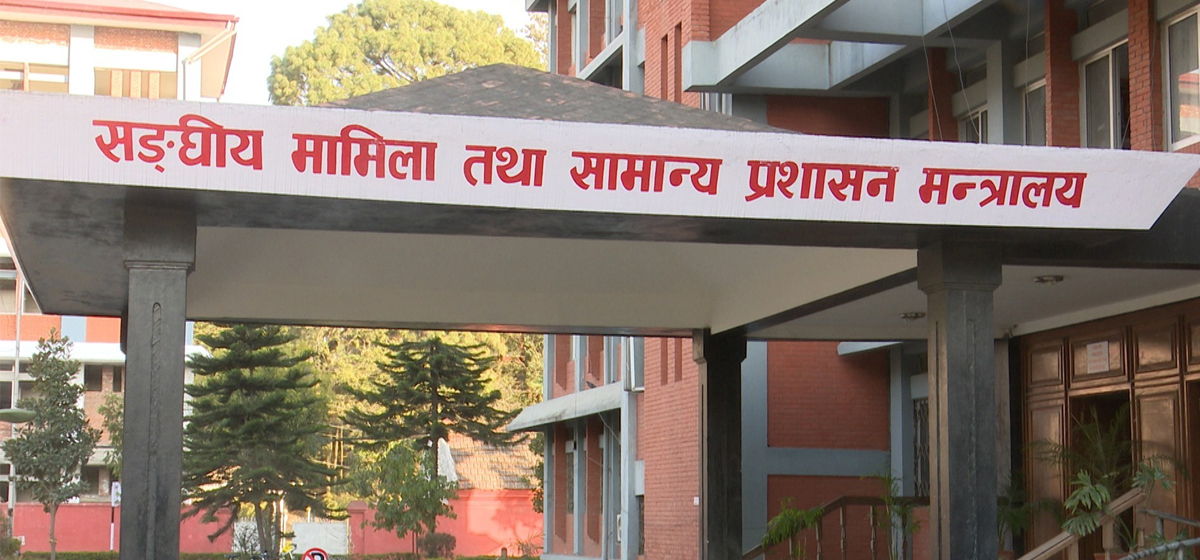



Leave A Comment